A truly impressive and encouraging turnout of 15 enthusiastic juniors gathered eagerly at the Library, all excited and ready to learn the game of chess and engage in playing. Their enthusiasm and eagerness to develop their skills and enjoy the game created a wonderful atmosphere for learning and fun.
A warm welcome to newcomers Issac, Jonah, Samuel and Toshika.
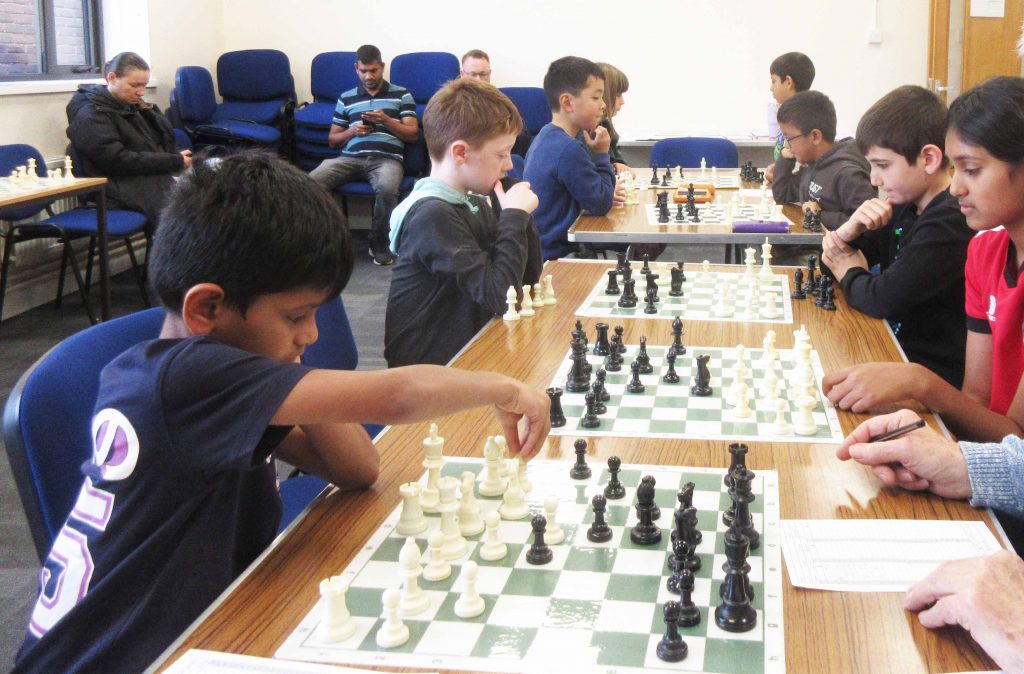
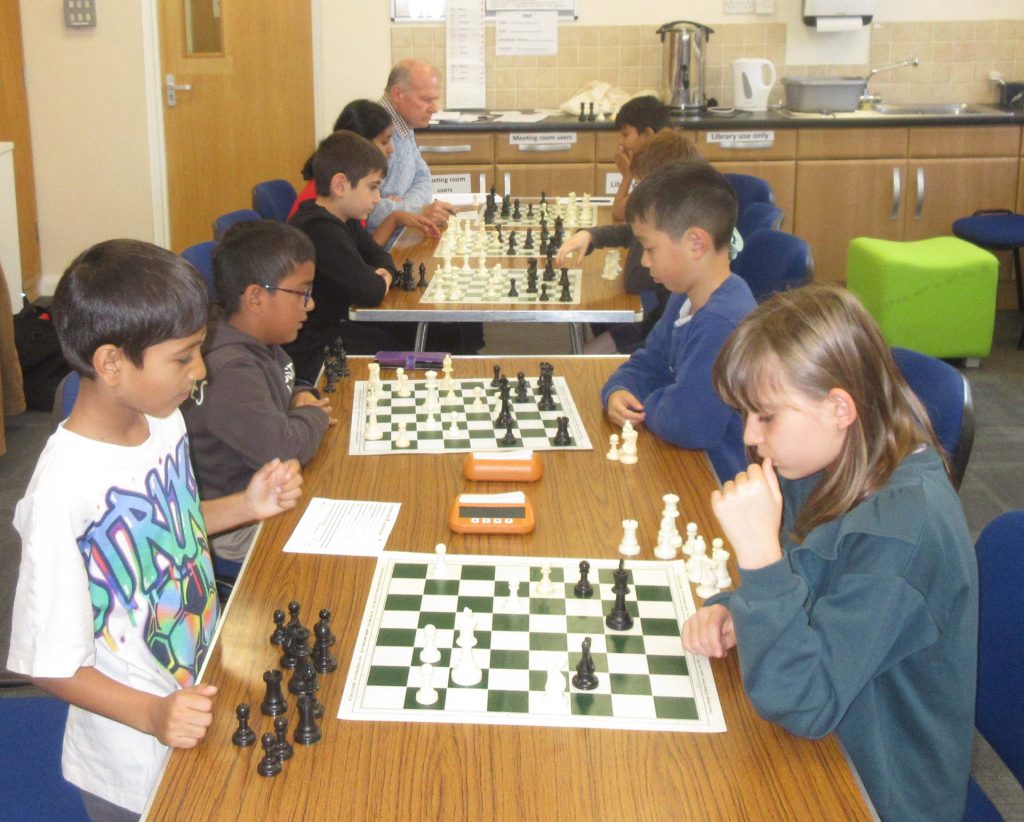
Theme of the day – The Pin
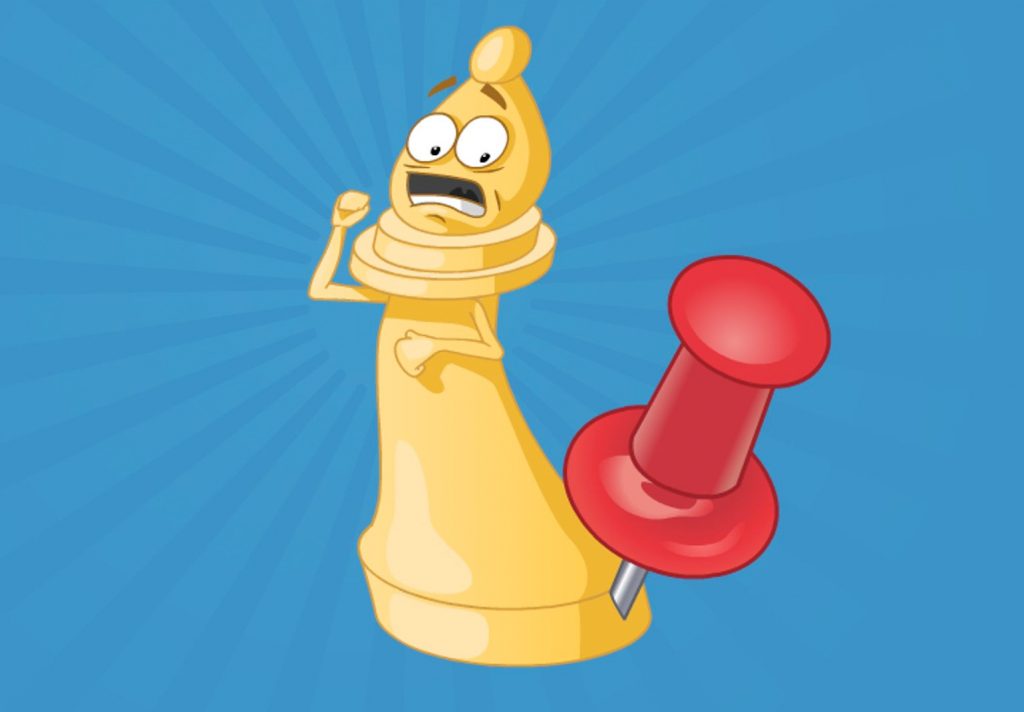
Why pin tactics are so powerful
Pin tactics are one of the most common tactical patterns in chess. In fact, you will hardly ever see a game where pins did not play a role at some point during the game – which is another important reason to study them.
So let’s talk about the PIN tactic in chess. A pin is when one piece restricts the movement of an opponent’s piece because moving it would expose a more valuable piece to capture.
Only long range pieces:- Queen, Rooks and Bishops can be used to pin.
Pins are achieved on Ranks, Files and Diagonals. In an endgame position with only kings, pawns and knights on the board, pin tactics aren’t possible.
Three Types Of Pins
- Absolute Pins: A piece is pinned against the king and cannot move because it would put the king in check, which is illegal.
- Relative Pins: A piece is pinned against a high-value piece like the queen. Moving the pinned piece is legal but usually inadvisable because it would result in a significant material loss.
- Situational Pin: A pinned piece might be blocking access to an important square
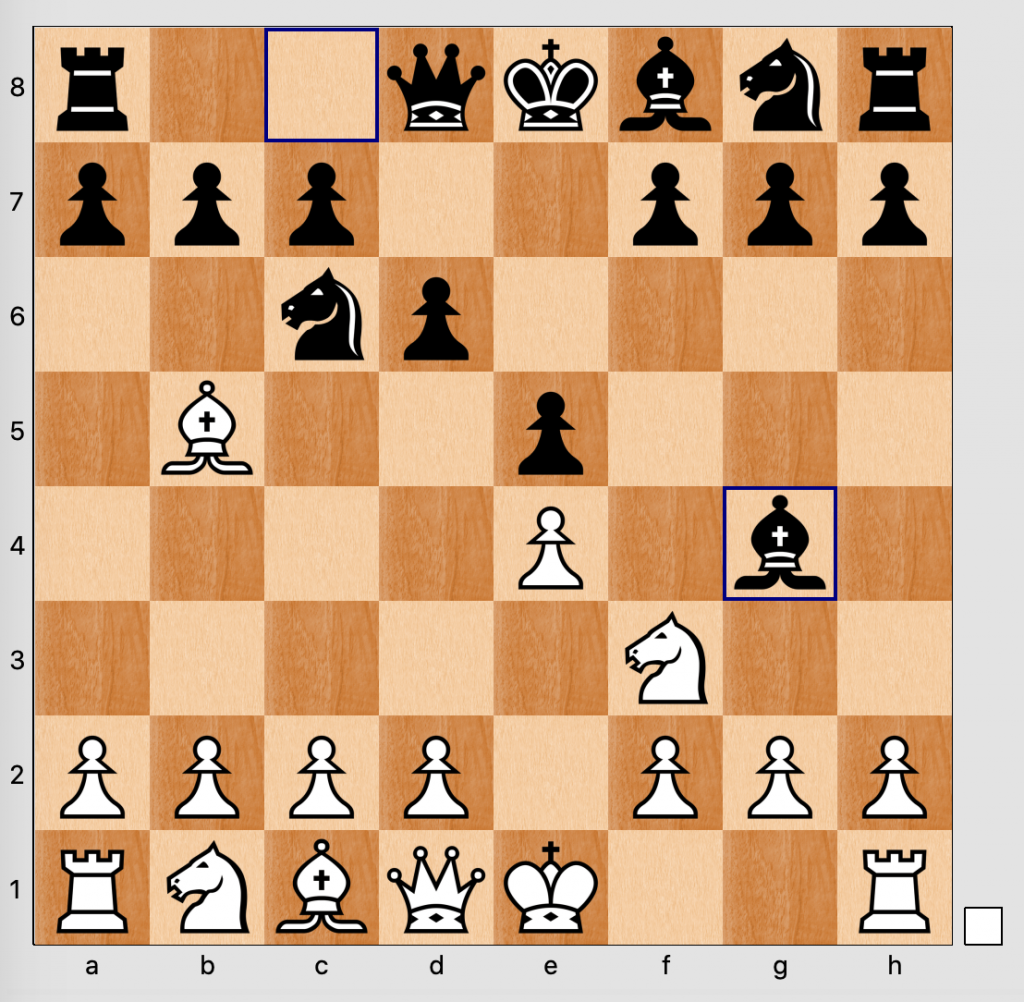
White’s Bishop has a Absolute Pin on the Knight against the King, the Knight cannot legally move, whereas Black’s Bishop has a Relative Pin against the Queen, the white Knight could move, but would lose the Queen.
Situational Pin
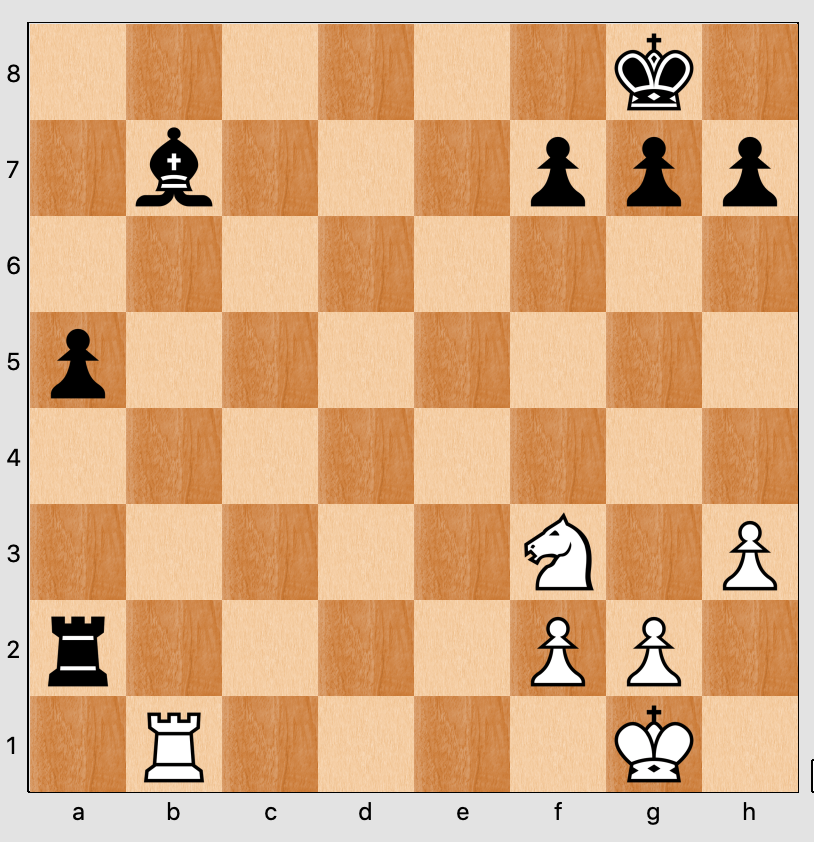
The Bishop on b7 is pinned in situation because if it should move, White’s rook will checkmate Black’s King in a ‘back rank’ mate.
How Pins Can Be Used to Gain Material Advantage
- Simple Pins: An example of a simple pin is where a rook or bishop pins a piece against a higher-value piece, leading to a straightforward material gain.
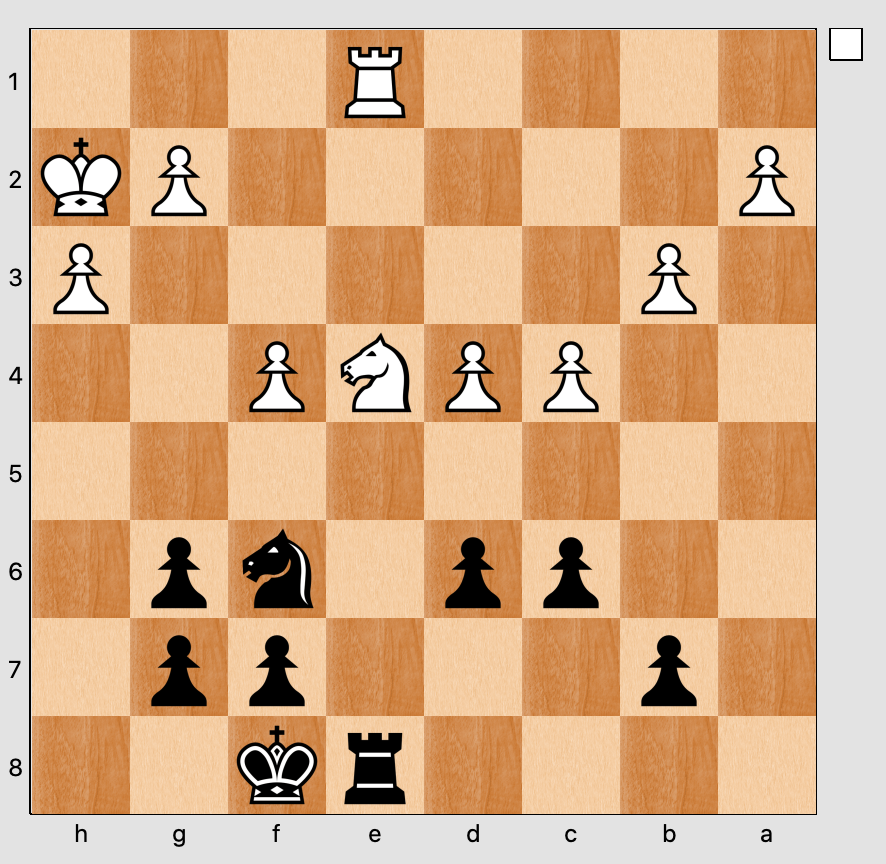
Here the Black Rook pins White’s Knight as White’s Rook is unprotected.
- Intermediate Pins: Intermediate pins are more complex scenarios where the pin is part of a combination of tactics, such as deflection or sacrificing a piece to set up the pin.
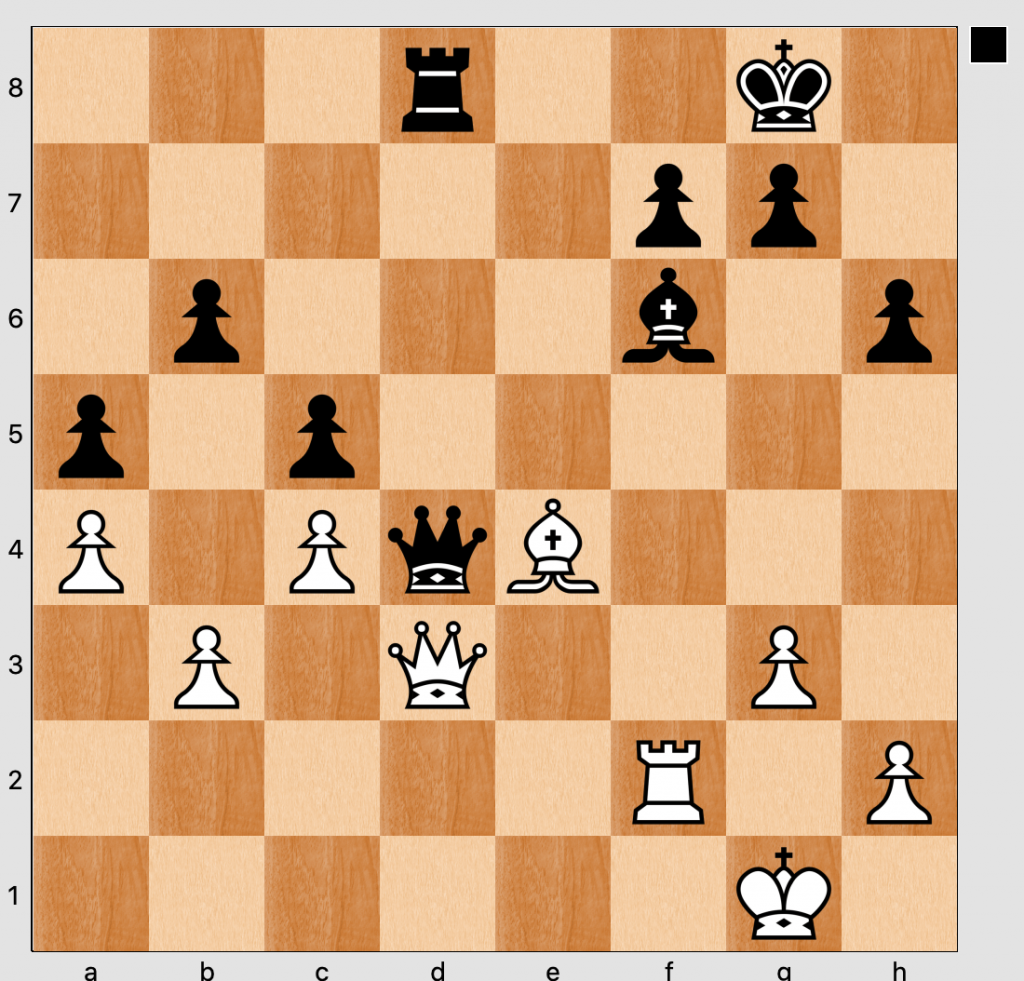
This example shows Black’s Queen is Pinning the Rook against the King, but Queen for Rook is not a good exchange, so with Black to move, Queen takes Queen, Bishop takes Queen.
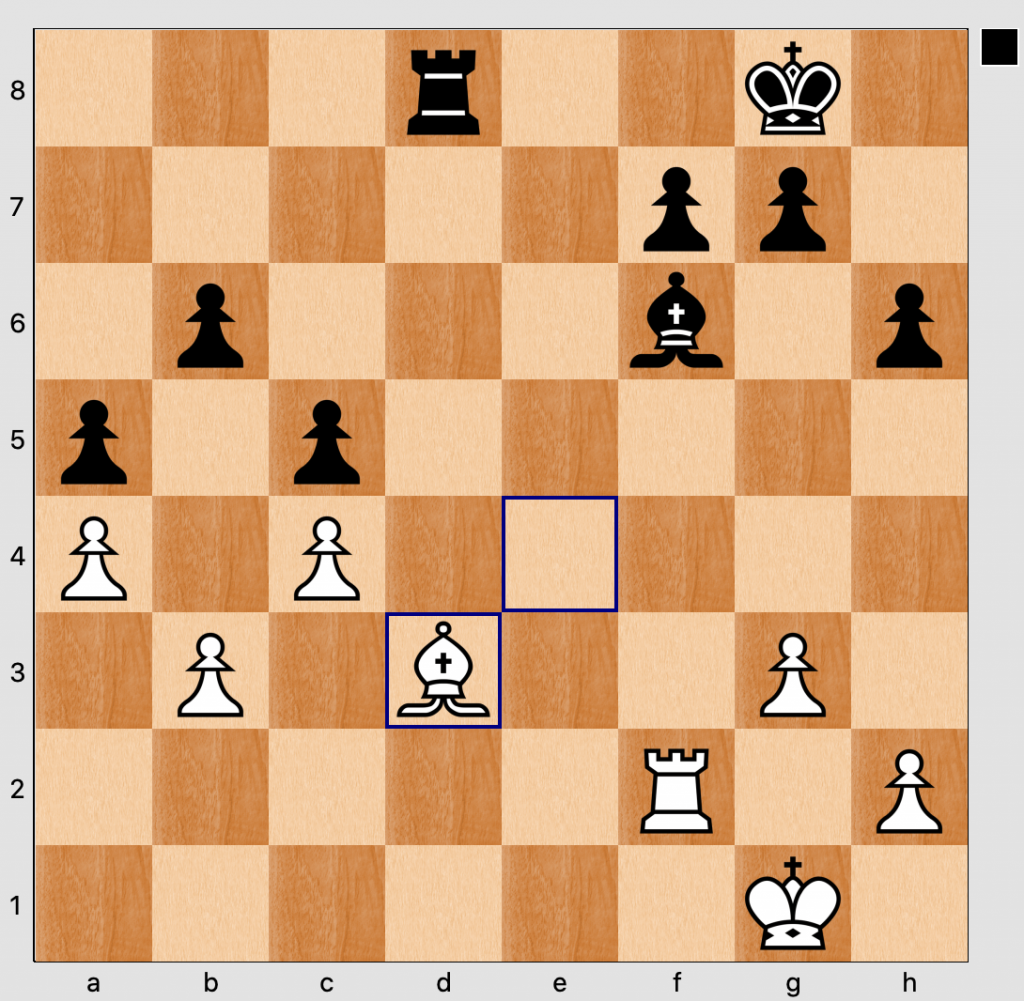
Now Black’s Bishop can move to pin the Rook, with a much better exchange.
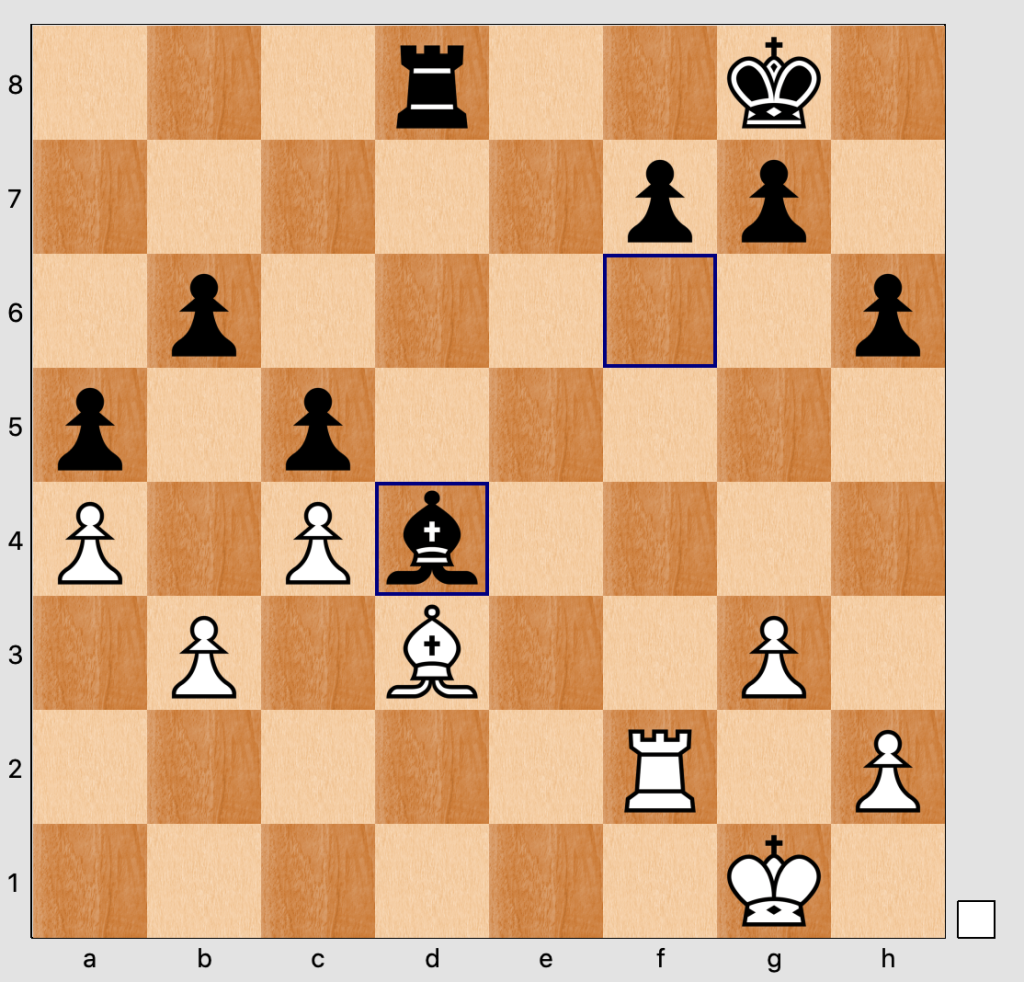
Remember that you “don’t have to take a pinned piece“, if it causes problems for your opponent then leave it, as long as it’s safe to do so. More importantly, attack a pinned piece with a Pawn or another piece.
Being able to recognise potential pin patterns and understanding how to exploit them effectively are important skillsets to develop in your chess game. While focusing specifically on pins in this lesson, successful chess play involves integrating multiple tactics like Forks, Skewers, Discovered Attacks, Removing the Guard etc etc, to create powerful moves and combinations. All these will be covered (again, for some members) over the next few weeks.
I encourage you to practice recognising and use pins in various positions to improve your overall tactical awareness and skill.
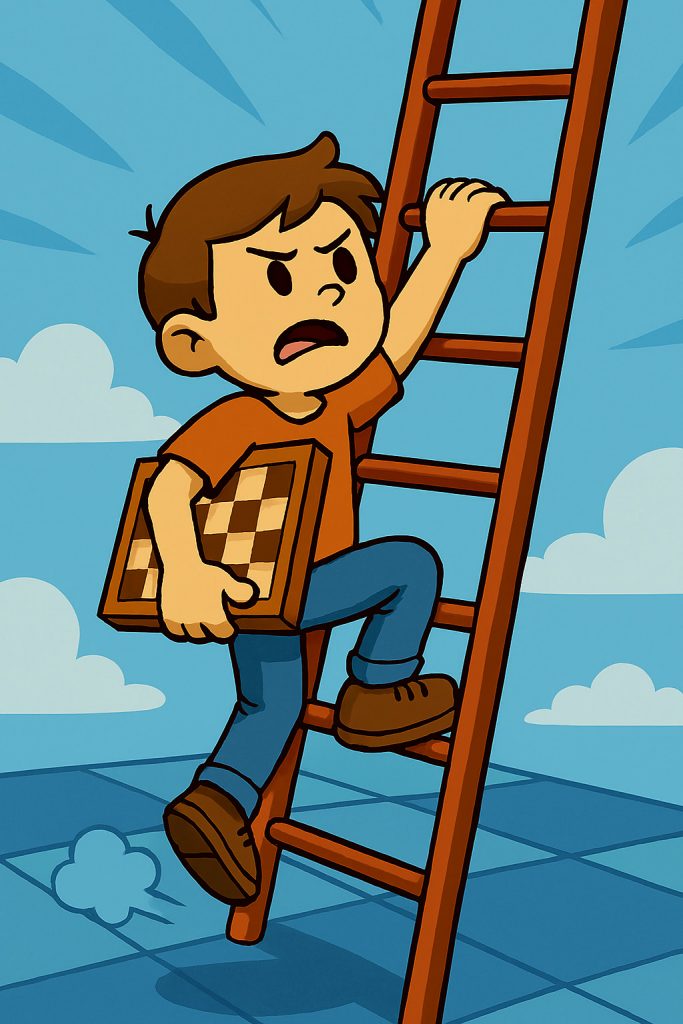
Latest Ladder positions after todays games:-
Wins today for :-
Michal, Austin, Samuel, Jonah, Isaac, Advik, Gagan, Lewis, Constance and Tishitha.
Those with equal points are listed in alphabetical order.

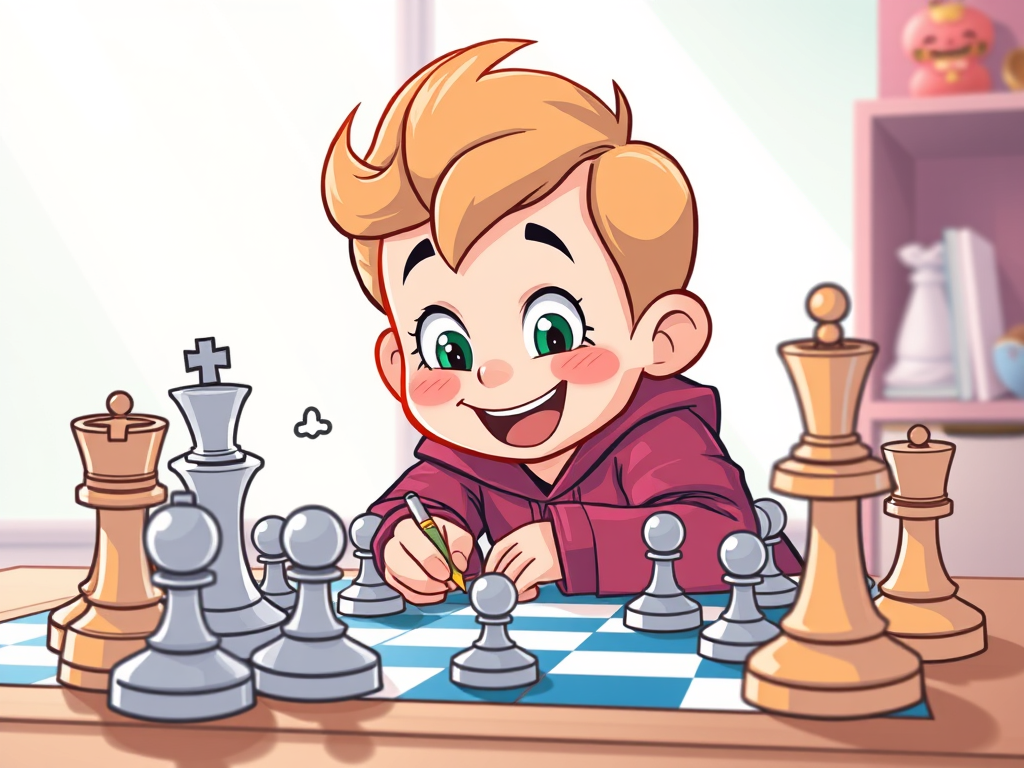
Featured Game of the Day
To have your game featured here with detailed analysis, please record all your moves. This practice can be highly instructive and help enhance your strategic thinking.
I played this game against Gagan, who is rapidly improving as a chess player. He played well, but spent most of the game on the defensive because he delayed controlling the center, which limited his Rooks’ activity and opportunities to enter the game.
Midweek Quiz results so far:-

Homework Quiz
Take-home sheets are available on the display table for easy reading and practice. The only member actively involved is Lewis, so well done to you. Here are your latest results:-

Thursday afternoon chess continues in the Ferndown Library 2 - 4 pm. Some tuition for beginners is available.
Online chess websites:-
These sites can give you added tuition and the opportunity to play games, if you would like that.
Lichess.org
Chess.com
ChessKid.com
I look forward to seeing you all next week
